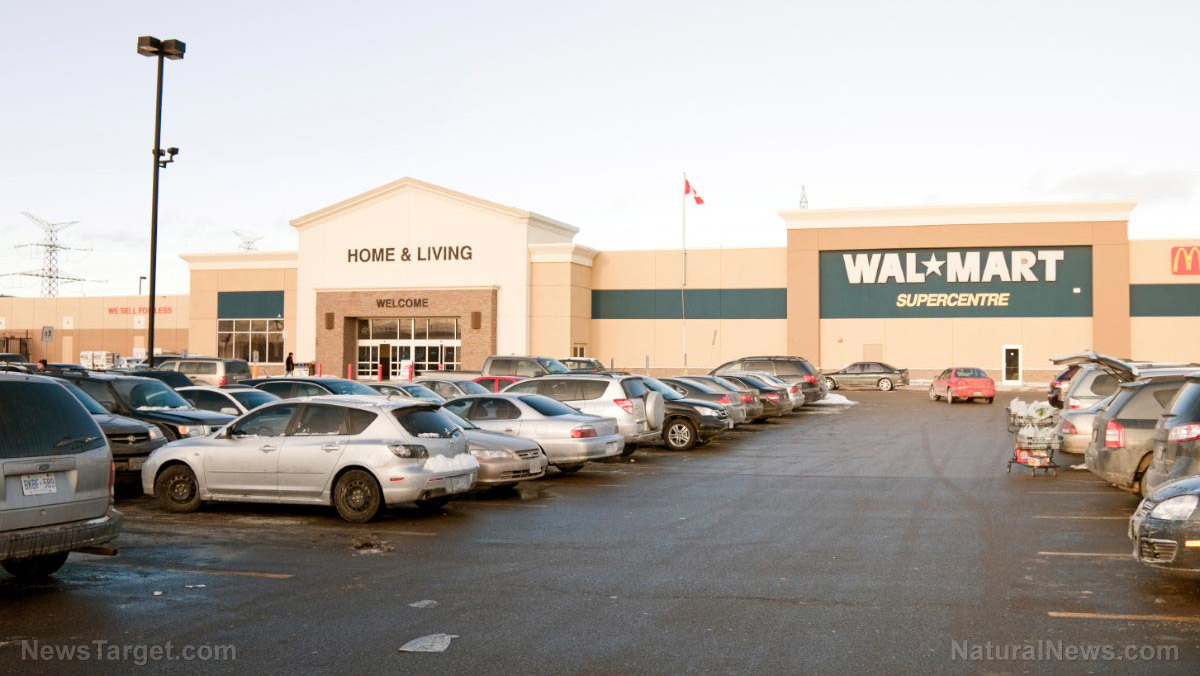
Walmart is expected to once again increase store prices at a time when even the American middle class is struggling to shop for essentials at the big box store that many consider to be one of the cheapest places to get goods.
Walmart has been warning for months now that inflation in the United States may force the company to raise its prices. Walmart Chief Financial Officer John David Rainer said the corporation is "still feeling the effects of higher prices" caused by inflation. (Related: Wealthy shoppers now embracing discount stores amid worsening FOOD INFLATION.)
Rainey also refused to provide any information on which items might be marked up in the coming months, only noting that the shopping habits of Walmart consumers have evolved, and many are now adding lower-margin groceries to their carts and abstaining from obtaining higher-margin goods like apparel and other home goods.
The Walmart CFO said he expects inflation to be about three percent by the end of the year, half of what it is now, but still well above the Federal Reserve's desired two percent inflation rate.
This expected price increase comes as grocery prices at Walmart already climbed by nearly 22 percent between 2019 and 2022, with much of the increase coming in late 2021 to coincide with an inflation spike during that period.
It should be noted that this report of looming price increases comes despite Walmart reporting a 7.33 percent profit growth, with company executives claiming the need to increase prices due to weaker sales volume and a prediction that this trend of lesser sales will continue for the rest of 2023.
Even upper-class Americans cutting back on spending due to inflation
The prospect of Walmart raising prices comes at a time when nearly all Americans, regardless of wealth, are already cutting back on their spending due to unrelenting inflation.
One survey conducted by CNBC in collaboration with Morning Consult found that 92 percent of Americans are pulling back on groceries, further evidence of what retailers including Walmart have called out as cautious consumer habits that first arose during the first quarter of the year.
Many of these shoppers report that inflation is squeezing their finances – about half of whom are unable to keep up with the speed of price increases. Of the middle-income survey respondents – or those who make between $50,000 to $100,000 a year – 92 percent reported being either "somewhat" or "very" worried about higher prices.
This is an even higher proportion than those in low- and high-income groups, with around 88 percent of each of those segments reporting feeling concerned about inflation.
"Most everyday essentials and bills cost more now than in recent years. Continuing to pay for these rising expenses with the same income can be a challenge for many," wrote Natasha Etzel for financial advice company The Motley Fool. "Plus, it can be frustrating when your employer doesn't offer a raise or denies your request for one, especially if you've gone above and beyond in your role."
These higher prices and concerns about inflation have led nearly 80 percent of all consumers to cut spending on non-essential goods, like clothing, appliances, home decor and non-essential services like entertainment.
Furthermore, two-thirds of respondents reported spending less on essential goods and services, like groceries, utilities and gas. When discussing groceries, over half of consumers said they were turning to cheaper alternatives, like private label brands, or purchasing less just to keep spending down.
Spending at value-oriented, discount and dollar stores is also surging compared with the overall grocery industry, according to credit and debit card spending data from the Bank of America.
"We think this reflects trade down from higher incomes, in line with commentary from Grocery Outlet and Walmart," said Bank of America securities analyst Robert Ohmes.
Other data strongly suggests the spending habits of consumers are unlikely to change for the rest of the year, with the CNBC-Morning Consult Poll showing two-thirds of respondents saying they still plan on cutting spending on essential items over the next six months. Furthermore, around 77 percent plan to keep slashing spending on non-essential goods.
Learn more about the collapse of the American economy at EconomicRiot.com.
Watch this video discussing how even middle-class Americans are having difficulty shopping at Walmart.
This video is from the channel Earth Shaking News on Brighteon.com.
More related stories:
The globalist endgame for America's economy is HYPERINFLATION followed by COLLAPSE.
Shoppers burdened by inflation are turning to discount supermarkets Walmart and Dollar General.
Couples are now fighting while shopping as grocery prices soar to new highs.
Sources include:
Please contact us for more information.

















